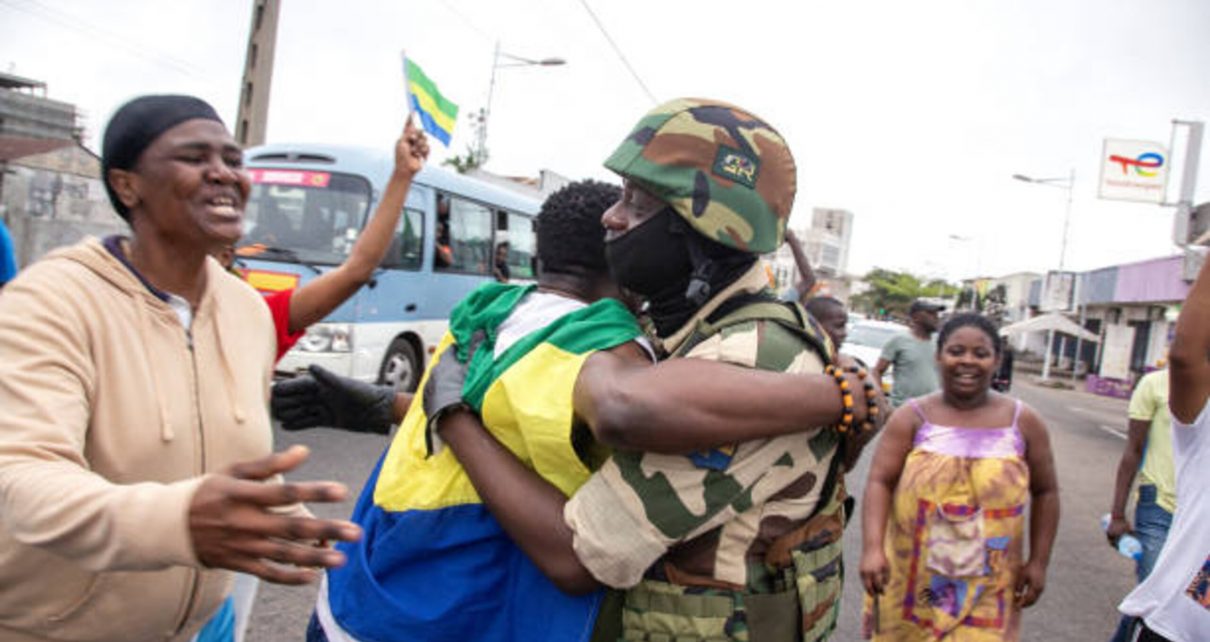In the wake of a sudden governmental upheaval, Gabon finds itself in a state of anticipation as it observes the forthcoming actions of its nascent military junta. A mere day ago, the junta orchestrated a swift overthrow of the existing administration, ushering in a fresh leader while confining long-standing President Ali Bongo within the confines of his residence.
The junta’s proclamation of their takeover was broadcast across the nation’s television screens in the early hours of Wednesday, a decisive move that effectively annulled the election outcomes that had just minutes before ratified Bongo’s third term in office. This abrupt reversal forestalled the extension of his family’s extensive 56-year reign.
This marked event signifies the eighth instance of political upheaval to transpire across West and Central Africa since 2020. Notably, it also stands as the second occurrence within a matter of months, the first having been observed in Niger. Predominantly, these transformations have unfolded within the context of Francophone nations. The ranks of military officers wresting power have expanded to encompass Mali, Guinea, Burkina Faso, and Chad, collectively unravelling the democratic progress that had been painstakingly cultivated since the 1990s. In response, global powers vested with strategic interests in the region have voiced apprehension and concern.
Gabon, recognised as an OPEC member, exerts considerable influence as a pivotal producer of oil and manganese. The nation’s recently deposed president also undertook commendable initiatives to safeguard Gabon’s expansive, pristine forests and its vulnerable elephant population.
However, Ali Bongo’s standing amongst the populace had eroded over time, a consequence of allegations of corruption, the veneer of fraudulent elections, and perceived negligence in allocating more of the nation’s oil revenues towards the amelioration of the citizenry’s living conditions.
Ali Bongo assumed the reins of power in 2009, subsequent to the passing of his father, Omar, who had held sway since 1967.
In the urban thoroughfares of the capital city, Libreville, crowds numbering in the hundreds expressed jubilation over the military’s intervention, a public display that unfolded in parallel to condemnatory statements issued by the United Nations, the African Union, and France – the latter being Gabon’s historical colonial overseer and a nation with stationed troops within Gabon.



